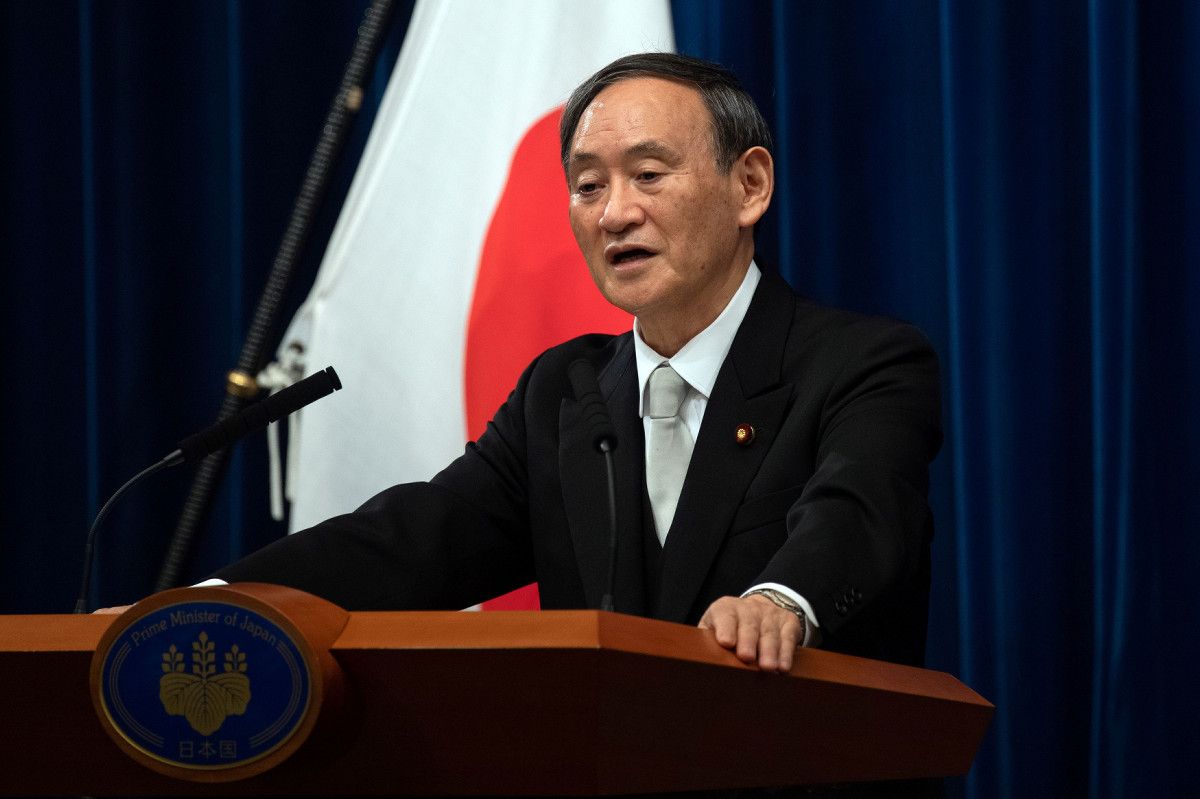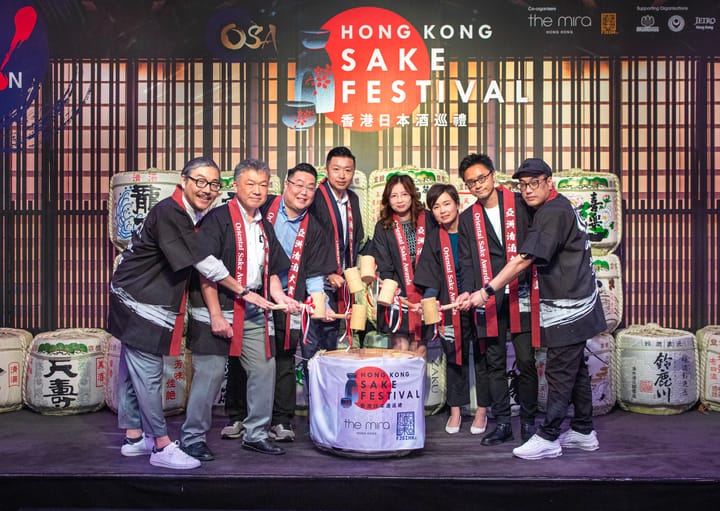Who is Yoshihide Suga?

A few minutes every morning is all you need.
Stay up to date on the world's Headlines and Human Stories. It's fun, it's factual, it's fluff-free.
While Yoshihide Suga has vowed to carry on Abe’s legacy, his own personal style and political ascent from the son of a strawberry farmer to Japan’s new prime minister could inject the new administration with a unique purpose and vision.
Yoshihide Suga became Japan’s 99th prime minister on September 16, following the unexpected announcement in late August that former Prime Minister Shinzō Abe would resign as a result of long-standing health issues.
Suga had served as the chief cabinet secretary during the eight-year-long Abe administration – the longest in modern Japanese history. Suga secured the support of the mainstream LDP (Liberal Democratic Party) factions, Japan’s ruling party. In doing so, Suga beat back other figures more popular with the public in the closed LDP presidential election.
Suga, 71, is older than the 65-year-old Abe and the two men come from radically different backgrounds.
Abe, like many Japanese politicians, comes from a family with a long political history. Abe’s grandfather, Kishi Nobusuke, served as Japan’s prime minister from 1957 to 1960 and his great-uncle Sato Eisaku held the post from 1964 to 1972.
In contrast, the quiet and reserved Suga grew up in Yuzawa, a city in Japan’s northeastern Akita prefecture, some 300 miles from Tokyo – the center of Japan’s political power.
Suga’s family background – his father was a strawberry farmer – would not have suggested a future as a powerful figure in one of the most stable Japanese governments in modern times. That Suga would become prime minister of a country with a high percentage of “hereditary politicians” is a remarkable feat in and of itself.
Suga has embraced the image of the Abe “continuity candidate.” Speaking after his election as head of the LDP on September 14, Suga claimed his government needs to “inherit and facilitate policies promoted by Prime Minister Abe in order for us to overcome this crisis” and said carrying on Abe’s legacy was his “mission.”
While Yoshihide Suga has vowed to carry on Abe’s legacy, his own personal style and political ascent from the son of a strawberry farmer to Japan’s new prime minister could inject the new administration with a unique purpose and vision.
Humble beginnings
Yoshihide Suga was born in 1948 in the city of Yuzawa, Akita prefecture, in Japan’s northeastern Tohoku region. The son of a strawberry farmer, when the young Suga graduated high school he moved to Tokyo, but at the time he reportedly had no interest in a political career.
In a testament to his humble background, Suga entered Tokyo’s Hosei University because it was the cheapest option available. Suga held a number of jobs to help pay for his tuition, including a stint working in a Tokyo cardboard factory.
Suga soon became interested in politics, launching his political career as a secretary to a politician in Yokohama, Japan’s second-largest city. Suga became a member of the Yokohama City Assembly in 1987 where he was known as the “shadow” mayor for his strong work ethic and actions behind-the-scenes.
Suga briefly served as minister for communications for Shinzō Abe in Abe’s first stint as prime minister from 2006-07, but this government ended in disaster with Abe’s first resignation.
It was not the end for Suga, nor his partnership with Abe. Suga has been widely credited with persuading Abe to run for as prime minister again in 2012, this time with significantly more success.
Abe’s shadow
Under the Abe government, Suga served for eight years as Abe’s chief cabinet secretary. In his position, Suga was responsible for coordinating policies across Japan’s ministries and holding news conferences outlining and defending government policy.
Megumi Naoi, associate professor of political science at the University of California, explains that while Suga’s role has provided plenty of public exposure, it has not allowed the former cabinet secretary to “come out with very strong policies” or identify himself politically with a certain vision, other than a defense of the Abe administration and its policies.
Despite this, Suga undoubtedly made a contribution to Abe’s policies over the eight years he spent as chief cabinet secretary. In some cases, Suga’s contributions were a direct result of his experience growing up outside of the country’s hereditary political caste.
Suga has been credited with helping Abe’s government push through controversial security laws in 2015 that allowed Japan’s Self-Defense Forces to join overseas combat missions alongside allies.
Suga has also supported new policies that open the door to greater numbers of foreign workers as the country continues to face questions over future labor shortages stemming from Japan’s demographic crisis.
The new prime minister
The announcement that Shinzō Abe was to resign his position as prime minister in August was largely unexpected. His term wasn’t set to end until 2021.
The 65-year-old Abe suffered from ulcerative colitis, an inflammatory bowel disease, for many years and his initial resignation, in 2007, was reportedly due to his health struggles.
In August 2020, amid speculation over a number of reported hospital visits, Abe announced that he had “made a judgement I should not continue my job as a prime minister.” He also expressed regret that some of his core pledges as prime minister, in particular overhauling Article 9 of Japan’s pacifist constitution and securing the return of Japanese citizens abducted by North Korean agents, remained unfulfilled.
A field of potential successors emerged almost immediately. Polls conducted in June, prior to Abe’s resignation, showed former Defense Minister Shigeru Ishiba in the lead with the support of 31% of the public. Yoshihide Suga had the support of a mere 3%.
But the suddenness of Abe’s resignation, combined with the economic impact of the coronavirus pandemic, served as the catalyst for Suga’s landing the job.
As Daniel M. Smith, associate professor of comparative politics at Harvard University, explained, Suga represents a “continuation of the Abe administration’s managerial stability,” which some view as especially important during a time of unprecedented instability.
Suga also stood to benefit from the decision of the LDP to hold a closed-off leadership election. Rank-and-file members of the party would not be given a vote, instead, the decision was left to the LDP’s 534 lawmakers and party representatives across the country.
Abe himself had originally planned for Policy Council Chairman Fumio Kishida to take the reins as his successor, but support from the major factions of the LDP led to a surge in Suga’s support.
In the final count, Suga won 377 of 534 votes, or 70%, to Kishida’s 89 votes and former Defense Minister Shigeru Ishiba’s 68.
Abe’s legacy or a new direction?
Commentators are already speculating about which policies will become the new prime minister’s priority.
In terms of relations with China and the United States, Bryce Wakefield, executive director of the Australian Institute of International Affairs, believes that Suga will continue his predecessor’s goal of seeking to “lessen strategic dependence on the Chinese economy.” Prime Minister Suga has already stated, during an LDP presidential candidate debate, that Prime Minister Abe’s “diplomacy was truly amazing. I don’t think I can match that.”
Yoshihide Suga’s personal priorities may rest more at home. In April 2019, the job of unveiling the name for the new Imperial era ahead of Emperor Akihito’s abdication was given to then-Chief Cabinet Secretary Suga. In revealing the “Reiwa” era, Suga responded to reporters asking what his aspirations for the new era were by replying “drawing foreigners, exporting agricultural goods and supporting the countryside with the hometown tax.”
Suga’s early life has undoubtedly informed the attention he’s given to Japan’s struggling rural areas. Suga’s hometown of Yuzawa is symptomatic of many of the problems that nonmetropolitan Japan faces, with an aging population and a drop in tax revenue as younger residents move to larger cities.
Suga has already been credited with spearheading the 2008 furusato nōzei, or “hometown tax,” policy, which allows people to pay their local taxes to an area other than where they live, such as struggling Yuzawa, in return for local delicacies and produce as gifts.
Having already stated that upholding Abe’s legacy and policies would be his personal “mission,” it is likely that so-called “Abenomics,” the economic and fiscal policies of Abe’s government, will remain in place. This will commit Suga to continue existing government programs, structural reforms and monetary policies.
However, Suga’s own inclination toward free-market economics, described by Isao Mori, his biographer, as akin to “Thatcherism or Reaganism,” may see Suga introduce further competition into some of Japan’s heavily regulated industries.
The new prime minister has already welcomed the idea of allowing more competition in Japan’s regulated mobile telecoms industry and has embraced furthering Japan’s digitalization.
Suga’s views on women
Suga is also expected to uphold Abe’s pledge to help Japanese women “shine” and encourage their further enrollment and empowerment in the workforce. Abe’s administration oversaw record numbers of women in the Japanese workforce, which is now at an all-time high of 52.2%.
Despite this, less than 15% of lawmakers in the national legislature are women. Likewise, only 12% of corporate management jobs are held by women, figures that led the Abe government to postpone its original target of 30% until 2030.
As Jay Andrew Allen, creator of Unseen Japan, a website discussing ongoing news and social justice issues in Japan, explained to TMS, we will likely see “social progress at the federal level continue to stagnate” under Prime Minister Suga.
For instance, a plurality of the Japanese public supports changing a law that requires spouses to have the same surname, which in practice sees women significantly more likely to change their names than their husbands. Suga, Allen stated, has been “lukewarm” on this issue and others, choosing instead to express his concerns that repealing the law would harm the family structure in Japan.
Suga also expressed dated attitudes about the role of women in Japanese society at the same time as the Abe government was making efforts to promote a place for women in the workplace. Upon the marriage of two popular actors in 2015, Suga commented that this would prompt “Mama-sans” around the country to “want to have babies alongside the new couple and contribute to the country.”
Suga’s new cabinet, too, generates little confidence that the one-time farmer’s son will break dramatically from tradition on social issues. Of a 20-person cabinet, Suga has chosen just two women, with a total cabinet average age of 60.38 years old.
Regardless, for Suga, carrying on Abe’s legacy or striking out to create a new identity and vision of his own may rest on the possibility of a snap-election in the next few months.
Some proponents have already argued that Suga should strike while the iron is hot and solidify his position by winning a mandate with the public, while others caution that the LDP-coalition’s electoral machine is not yet ready.
Public comments and cabinet appointments may suggest nothing revolutionary from the new prime minister as yet, but given the unprecedented nature of Japan’s pressing economic and societal issues, only time will tell if Suga intends to play his own tune or stay close to the pattern set by his predecessor, Shinzō Abe.
Have a tip or story? Get in touch with our reporters at tips@themilsource.com




Comments ()